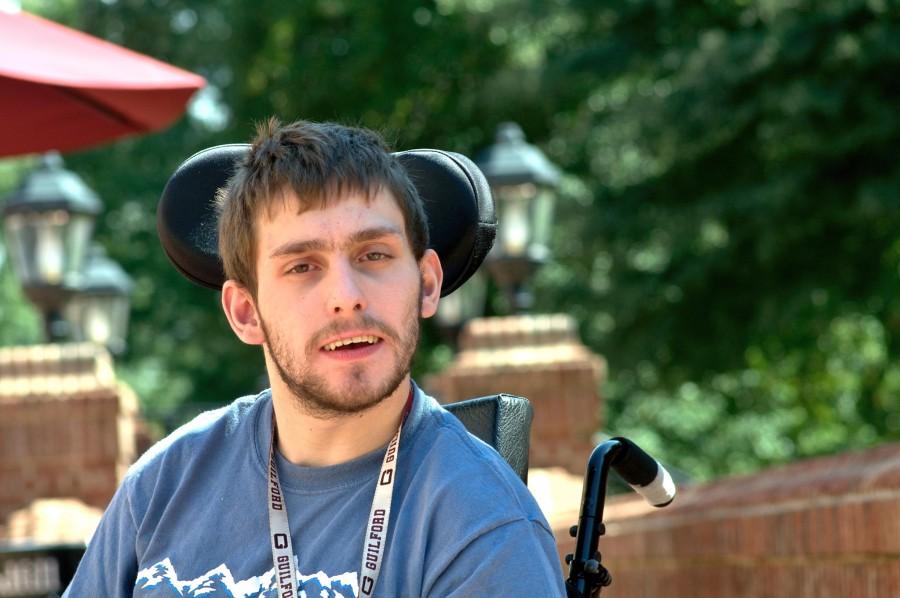Tales from the Crip
Those of you who know me are probably wondering why I am so passionate about disability rights.
My transformation into an advocate began three years ago when I attended a statewide meeting for young people with disabilities. The main topics of conversation were ways of looking at disability.
One perspective, known as the medical model, says that a disability is a sickness that needs to be mediated by a medical doctor or other professional. The model also says that the problem resides in the person themself.
Therefore, the disabled individual is in need of help and pity.
I have plenty of life experience illustrating this model at its finest.
My personal favorite was last year on the day before I left Guilford for the summer.
I was walking with my aide when a preacher approached us and said, “I love those people. They are so happy and cheerful, and brave too.”
By “those people,” she was referring to me, a person with a disability.
Her choice of words indicates the paternalism of the medical model. The word “brave” suggested that I am persevering in spite of my disability. This woman and the many other people like her mean well towards people with disabilities, but I interpret it as pity and I do not want to be pitied.
There is no excuse for treating people in such a paternalistic way. The Disability Rights Movement, which began in the 1970s in America, and laws such as the Americans with Disabilities Act of 1990 were made to equalize the social position of people with a disability. More than 30 years is plenty of time to change behavior.
In other words, it is time to change. The Accessibility Plan is a way that Guilford could help stimulate change.
Many people with disabilities, including myself, prefer the social model. It says that a disability is neither a good nor a bad thing; it is a fact of life. The problem is socially constructed, meaning the misconceptions and stereotypes of people with disabilities stem from society.
It is the misconceptions that create the challenges for people with disabilities.
The social model is the most empowering for both people with and without disabilities. If the misconceptions can be changed, at least in an idealized world, then disability would become an accepted difference rather than a problem that needs to be cured.
Many advocates would say that the world is slowly but surely shifting more toward the social model.
Over the last year I have helped design the accessibility plan at Guilford. There are many policy changes; for example in GuilfordNet the name “disability services” has been changed to “disability resources.” Even though this is a small step, it is very empowering because the word “resources” implies students are self-advocates and they can seek help when they need it. Therefore, changes such as that would shift the college toward increased use of the social model. It would be very progressive for the plan to be fully implemented.
Guilford proclaims itself to be a progressive college. There are at least 450 students with documented disabilities, making them at least 17 percent of the population, and I cannot see how we can call ourselves a diverse or progressive college without fully accepting these people and their differences by implementing the Accessibility Plan.
We should all support the plan because there is no way we can change the culture without a majority of the student, faculty and staff’s support. The plan strengthens our core values — specifically diversity, equality and stewardship — so it is important it does not fail.
Personally, this plan represents stewardship, because I think I have a responsibility to help make it easier for future students so that they can enjoy Guilford as much as I have.

